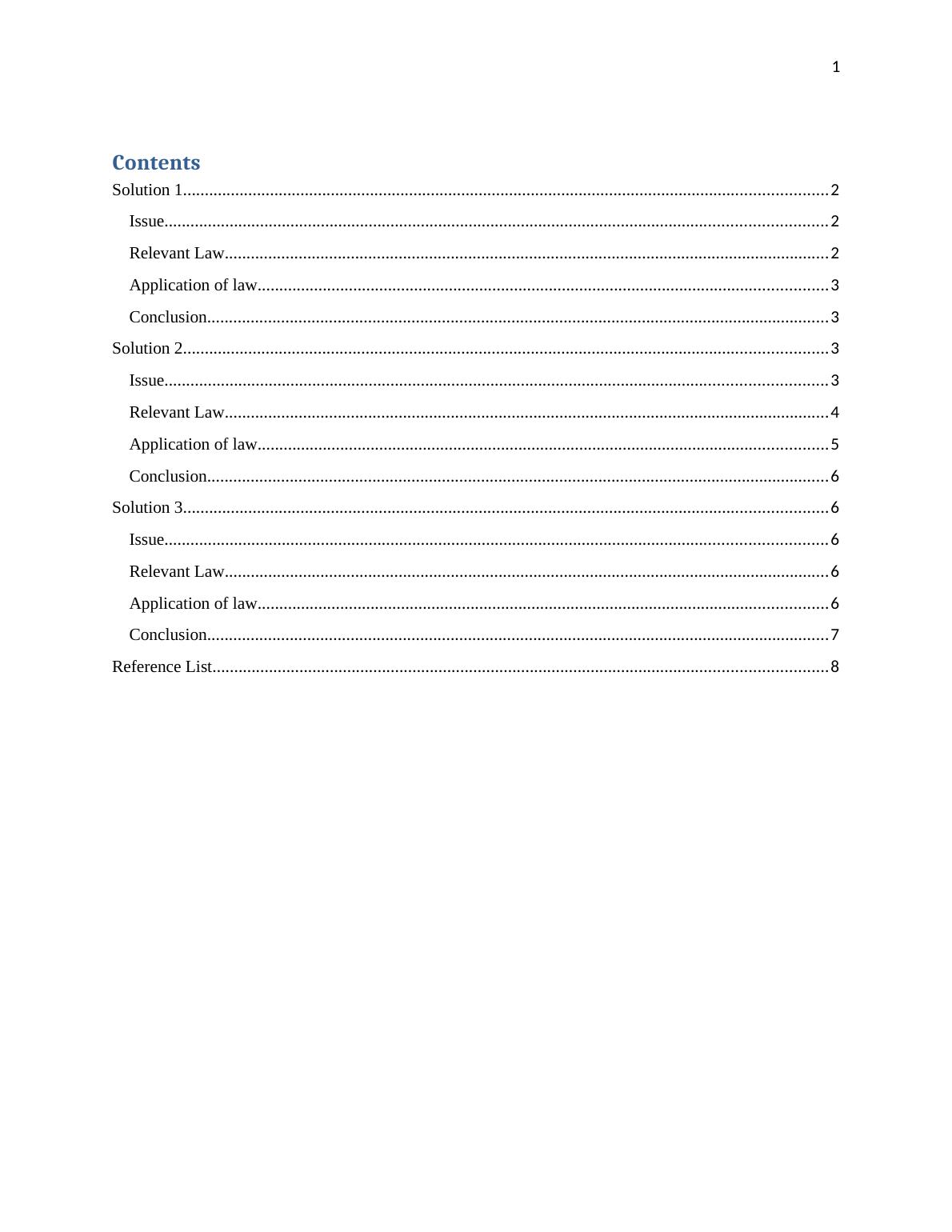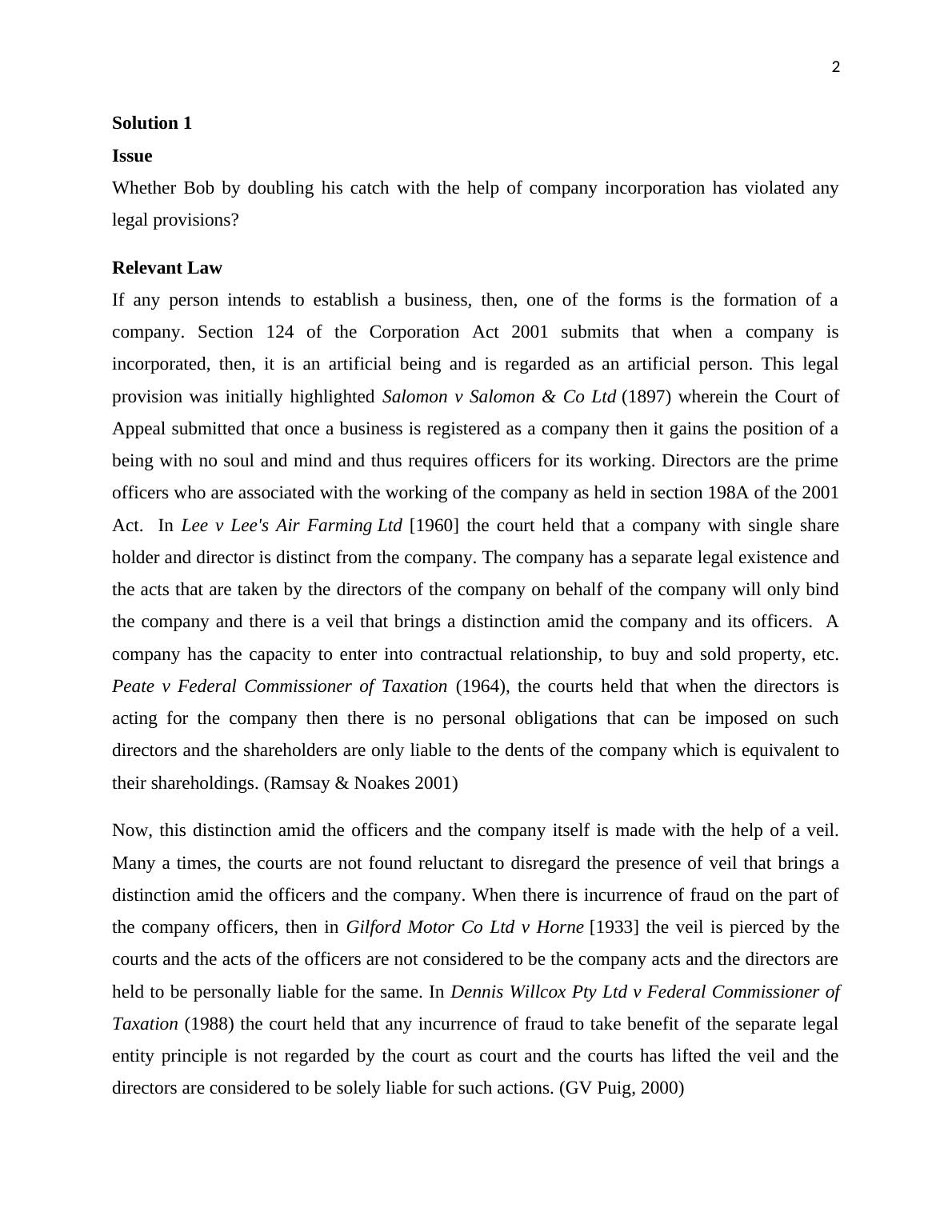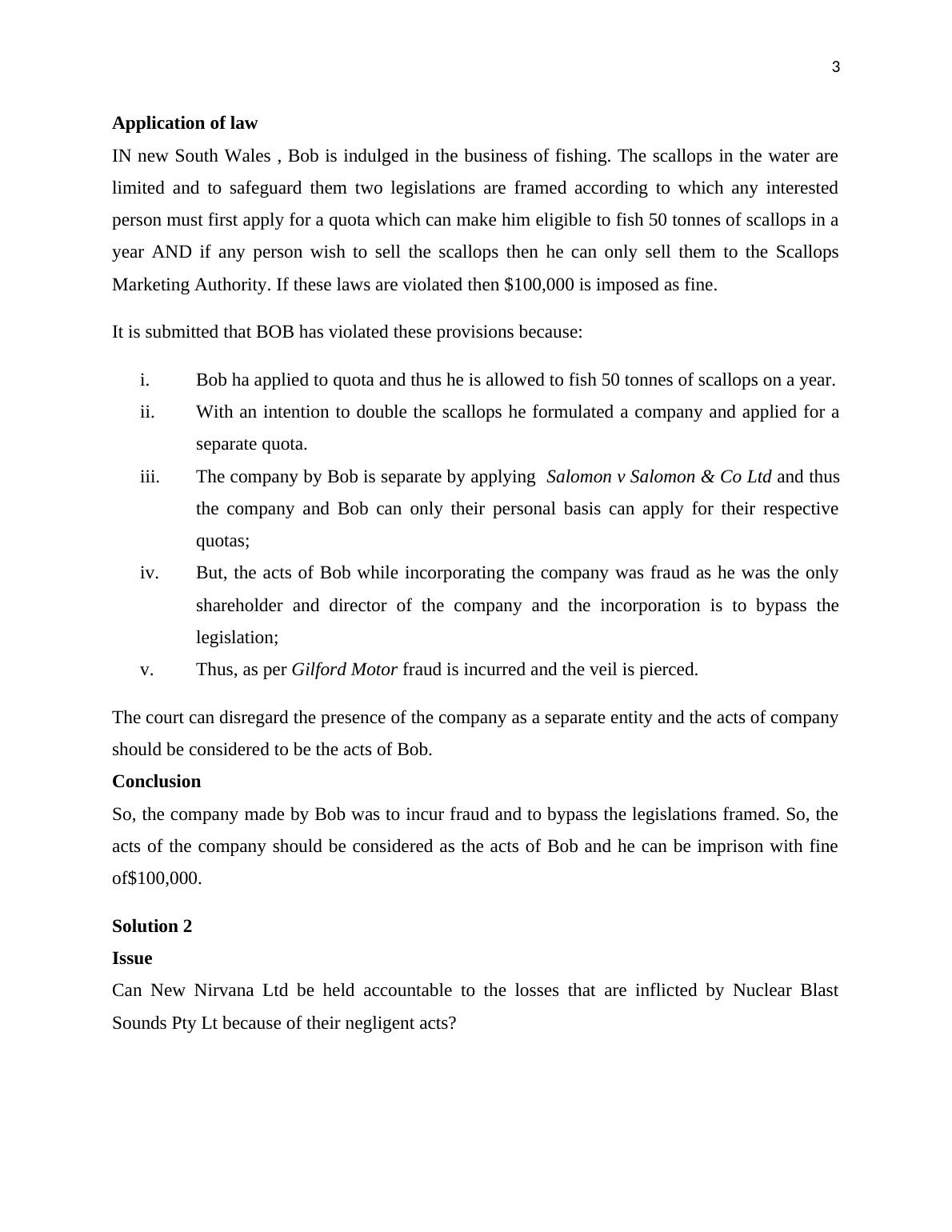Legal Issues and Relevant Laws in Business: Case Studies
8 Pages2481 Words110 Views
Added on 2023-06-05
About This Document
This document contains three case studies related to legal issues and relevant laws in business. The first case study discusses whether Bob has violated any legal provisions by doubling his catch with the help of company incorporation. The second case study explores whether New Nirvana Ltd can be held accountable for the losses inflicted by Nuclear Blast Sounds Pty Ltd due to their negligent acts. The third case study examines whether Don has any right to sue Millennium Pty Ltd for his removal from the post of solicitor of the company. The document provides relevant laws, their application, and conclusions for each case study.
Legal Issues and Relevant Laws in Business: Case Studies
Added on 2023-06-05
ShareRelated Documents
End of preview
Want to access all the pages? Upload your documents or become a member.
Legal Issues and Applicable Laws in Corporate Law
|9
|2486
|366
Application of law Assignment PDF
|6
|1793
|48
Legal Analysis of Hair-Glo Ltd and Partnership Liability
|7
|1983
|21
Legal Obligations of CMS, CM and Lazarus Pty Ltd for Loss Sustained by Terry
|7
|1638
|68
Directing Mind and Will Directing Mind of a Company
|4
|745
|168
Salomon is in the Shadow - Doc
|9
|2756
|102



